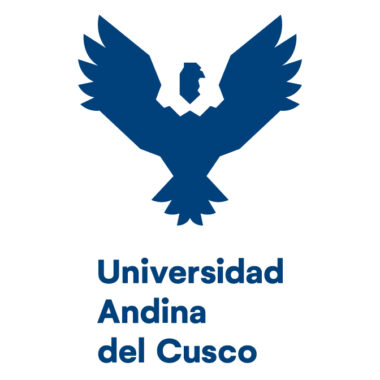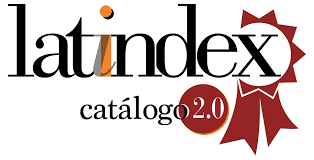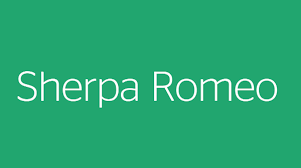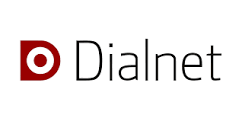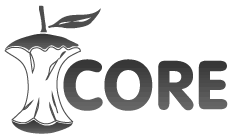Authentic tasks and stress in the Covid-19 context, correlation of its influence on the level of achievement in university students
DOI:
https://doi.org/10.36881/yachay.v12i1.321Keywords:
stress, covid-19, Sars-CoV-2, competences, mathematics, achievementAbstract
Students who start university with virtual education face the social isolation that at their age constitutes a serious problem; as well as the SARS-CoV2 pandemic, with situations that generate stress. The competency approach, as the current curriculum, can be achieved with case studies, research, projects, workshops, authentic tasks, where they put their capacities, abilities, skills, resources and values into play. Consequently, it is essential that every university course provides its students with authentic assignments and that they are monitored with feedback from the evidence sent by the students. The objective of the study was to determine the correlation between stress in the Covid-19 context and the level of achievement, expressed by an arrangement of a rubric to a vigesimal score, of the authentic tasks. A non-experimental quantitative research was developed, the data were collected by a stress inventory test in the context of Covid-19, to a sample of 31 type subjects, students of the professional school of agroindustrial engineering, of the subject of mathematics I , from the National University of San Antonio Abad del Cusco. There is a considerable negative correlation (r = -0.74), the greater the stress of the context, the lower the level of achievement in the authentic tasks. 74.19% present moderate stress, 54.84% are at the level of achievement “in process”. Because of this influence, a comprehensive social-emotional support program is urgently needed to cope with stress and improve the achievement of authentic tasks.
Downloads
References
Alania Contreras, R. D., Chanca Flores, A., Condori Apaza, M., Fabián Arias, E., Rafaele de la Cruz, M., Ortega Révolo, D. I. D., Roque Pucuhuayla, D. E., Villavicencio Condori, A. C. y Zorrilla Zárate, A. J. (2021). Baremación del Inventario de Estrés Académico SISCO SV adaptado al contexto de COVID-19 en una población universitaria peruana. Socialium, 5(1), 242-260. https://doi.org/10.26490/uncp.sl.2021.5.1.814
Álvarez, H., Arias, E., Bergamaschi, A., Lopez, A., Noll, A., Ortiz, M., Perez, M., Rleble, S., Camila, R., Scannone, R., Vasquez M., Viteri A. (2020), La educación en tiempos de coronavirus: los sistemas educativos de America Latina y el Caribe. Banco Interamericano de Desarrollo. https://publications.iadb.org/es/la-educacion-en-tiempos-del-coronavirus-los-sistemas-educativos-de-america-latina-y-el-caribe-ante-covid-19
Arango, J.A. (2018) Tareas auténticas en la articulación entre agricultura y matemática escolar: una experiencia con modelación. [Tesis de grado] Universidad de Antioquia-Colombia. https://bibliotecadigital.udea.edu.co/bitstream/10495/12055/1/ArangoJaime_2018_TareasMatematicasAprendizajeAgricultura.pdf
Boud, D. y Falchikov, N. (2006). Aligning assessment with long‐term learning. Assessment & Evaluation in Higher Education, 31(4), 399-413. https://doi.org/10.1080/02602930600679050
Brophy, J., y Alleman, J. (1991). Activities as Instructional Tools: A Framework for Analysis and Evaluation. American Educational Research Association, 20(4), 9–23. https://doi.org/10.2307/1176471
Brown, R. (2015). La evaluación auténtica: el uso de la evaluación para ayudar a los estudiantes a aprender. Relieve, 21(2), art. M4. DOI: http://dx.doi.org/10.7203/relieve.21.2.7674
Carless, D. (2007). Learning‐oriented assessment: conceptual bases and practical implications. Innovations in Education and Teaching International, 44(1), 57-66. https://doi.org/10.1080/14703290601081332
Castelló, M., y Monereo, L. (2009). La evaluación auténtica en Enseñanza Secundaria y Universitaria: investigación e innovación. Edebé. https://www.researchgate.net/publication/259863588_Castello_M_coord_2009_La_evaluacion_autentica_en_ensenanza_secundaria_y_universitaria_investigacion_e_innovacion_Barcelona_Edebe
Condemarín, M., y Medina, A. (2000). Evaluación Auténtica de los Aprendizajes: Un medio para mejorar las competencias en lenguaje y comunicación. Centro de Educación Preescolar y Especial. https://www.rmm.cl/sites/default/files/usuarios/mcocha/doc/201011141500430.libro_mabel_condemarin_evaluacion_aprendizajes.pdf
Currículo Nacional de Educación Básica CNEB, (2016). Ministerio de educación del Perú. http://www.minedu.gob.pe/curriculo/pdf/curriculo-nacional-2016-2.pdf
Fernández Enguita, M. (2020). Una pandemia imprevisible ha traído la brecha previsible. https://bit.ly/2VT3kzU
Fremerey, C., y Bogner, F. (2015). Cognitive learning in authentic environments in relation to green attitude preferences. Studies in Educational Evaluation, 44, 9–15. https://www.sciencedirect.com/science/article/abs/pii/S0191491X14000765
Fallas, J. G., Guzmán Aguilar, A., y Murillo Sancho, G. (2014). Evaluación de competencias y módulos en un currículo innovador: El caso de la licenciatura en Diseño y Desarrollo de Espacios Educativos con tic de la Universidad de Costa Rica. Perfiles Educativos, 36(143), 67-85. https://doi.org/10.1016/S0185-2698(14)70610-5.
Gómez Madrid, M., Hernández-Iglesias, Crespo C., A., M, A., González, M. A., y Beneit Montesinos, J. V. (2019). Fiabilidad de una escala para la evaluación de competencias enfermeras: estudio de concordancia. Educación Médica, 20(4), 221-230,. https://doi.org/10.1016/J.EDUMED.2018.12.002
Hernández, A. (2020). Acceso, usos y problemas en la educación virtual: una aproximación a las experiencias de estudiantes y docentes durante la cuarentena obligatoria en Argentina. Pacha. Revista de Estudios Contemporáneos del Sur Global 1(1), pp. 68-75. https://doi.org/10.46652/pacha.v1i1.5.
Hernández, R., Fernández, C., Baptista, P.(2002) Metodología de la Investigación. Mc Graw Hill Educación.
Hernández, R., Fernández, C., Baptista, P.(2014) Metodología de la Investigación. Mc Graw Hill Educación.
Herrington, A.,Herrington J. (2006). Authentic Learning Enviroments in Higher Education. Idea Group.
Lazarus, R. S. y Folkman, S. (1986). Estrés y procesos cognitivos. Martínez-Roca.
Lloyd, M. (2020) Desigualdades Educativas y la brecha digital en tiempos de COVID-19. En H. Casanova Cardiel (Coord.), Educación y pandemia: una visión académica. UNAM.
McTighe, J., y Wiggins, G. (2012). What is ubd framework? Understanding by Design. https://www.ascd.org/ASCD/pdf/siteASCD/publications/UbD_WhitePaper0312.pdf
Morales, J., y Ruiz, M. (2015). El debate en torno al concepto de competencias. Investigación en Educación Médica, 4(13), 36-41. https://doi.org/10.1016/S2007-5057(15)72167-8
Pérez-Cabaní, M., Carretero Torres, M., & Juandó Bosch, J. (2009). Formación de profesores y evaluación. IRAESO: un instrumento para reflexionar sobre la evaluación del aprendizaje. La evaluación auténtica en enseñanza universitaria: investigación e innovación. Edebé.
Picón, E. (2013) La rúbrica y la justicia en la evaluación. Ikala, revista de lenguaje y cultura, 18(3) 79-94. http://www.scielo.org.co/pdf/ikala/v18n3/v18n3a6.pdf
Sadler, D. Royce (2010). Beyond feedback: developing student capability in complex appraisal, Assessment & Evaluation in Higher Education, 35(5), 535-550. https://doi.org/10.1080/02602930903541015
Shepard, L. (2006). La evaluacion en el aula. Universidad de Colorado campus Boulder. ACE/Praeger Wstport.
Shigemura, J., Ursano, R. J., Morganstein, J. C., Kurosawa, M., y Benedek, D. M. (2020). Public responses to the novel 2019 coronavirus (2019-nCoV) in Japan: Mental health consequences and target populations. Psychiatry and Clinical Neurosciences. (Advance online publication). https://doi.org/10.1111/pcn.12988
Tobón, S. (2007). El enfoque complejo de las competencias y el desarrollo curricular por ciclos propedéuticos. Acción Pedagógica, 16, 14-28. https://dialnet.unirioja.es/descarga/articulo/2968540.pdf
Urzua, A., Vera, P., Caqueo, A., Polanco, R.(2020) La psicología en la prevención y manejo del COVID-19. Aportes desde la evidencia inicial. Terapia Psicológica, 38(1), 103–118. https://scielo.conicyt.cl/pdf/terpsicol/v38n1/0718-4808-terpsicol-38-01-0103.pdf
Villarini, A. (1998). Teoría y pedagogía del Pensamiento sistemático y crítico. Organización para el Fomento del Desarrollo del Pensamiento. http://generales.uprrp.edu/pddpupr/docs/Teoria%20y%20pedagogia%20del%20pensamiento.PDF.
Wiggins, G. (1989). The futility of trying to teach everything of importance. Educational Leadership, 47(3), 44-48,57-59. http://www.ibmidatlantic.org/Wiggins.pdf
Wiggins, G. (1998). Evaluación educativa: Diseñar evaluaciones para informar y mejorar rendimiento del estudiante. Editorial.
Downloads
Published
How to Cite
Issue
Section
License
Copyright (c) 2023 Franklin Taipe Florez, Doris Castro, Julio Cesar Condori Huillca, Santos Ruben Mamani Quispe, Feliciano Cumpa Huaman

This work is licensed under a Creative Commons Attribution 4.0 International License.
You are free to:
- Share — copy and redistribute the material in any medium or format
- Adapt — remix, transform, and build upon the material
- The licensor cannot revoke these freedoms as long as you follow the license terms.
Under the following terms:
-
Attribution — You must give appropriate credit, provide a link to the license, and indicate if changes were made. You may do so in any reasonable manner, but not in any way that suggests the licensor endorses you or your use.


